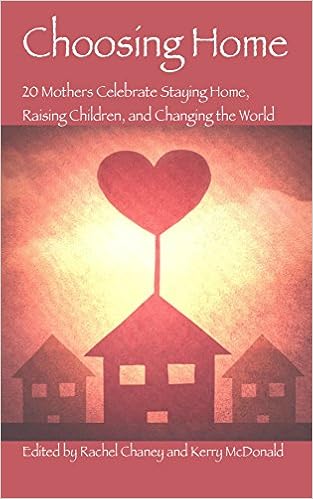Earlier this year, veteran homeschooling moms Milva McDonald (no relation) and Sophia Sayigh, released their book, Unschoolers. Using the distinct lens of fiction, Unschoolers offers a glimpse of the homeschooling lifestyle. Both parents and their homeschoolers are likely to see bits of themselves in the rich characters presented in the book.
In my interview with Milva below, she shares more about the development of this book, her own experience with homeschooling her four, now-grown children, and what she hopes readers take away from Unschoolers.
Finally, Milva's name may sound familiar to some of you. It was her unschooled daughter who graced the cover of Boston Magazine two years ago for their feature story, "Our Kids Don't Belong In School."
1. What prompted you
and Sophia to create this book?
I’d been thinking about writing a book for a while and I’ve
written fiction in the past, but it was Sophia who had the idea of portraying
unschooling in fiction. When she suggested it, I realized it was perfect. Not
only have Sophia and I homeschooled six kids to adulthood, we’ve been active in
the local and statewide scene and still serve on the board for the non-profit
organization we co-founded about a dozen years ago, Advocates for Home Education in Massachusetts. We’ve presented conferences and lectures on
homeschooling, and facilitated book clubs, writing groups, and debate clubs for
homeschoolers. We’ve organized countless field trips, camping trips, potlucks,
and so much more, so we felt we really had the knowledge and experience to tell
the stories in the book. The lack of representation of homeschoolers in fiction
was definitely a factor in the decision, as was the perennial question “What do
homeschoolers do all day?”
2. Why a fiction
book? How do you think fiction offers a special lens for examining
homeschooling in general, and self-directed education (e.g., unschooling) in
particular?
The book isn’t meant to sell anyone on homeschooling,
unschooling, or anything else. It’s fiction, so it’s really about a particular
set of characters and their lives. It just so happens that realistic portrayals
of homeschoolers and unschoolers have been mostly excluded from fiction and
movies. Instead we often appear as crazy or extreme in one way or another.
Novelist Chimamanda Ngozi Adichie gave a great TED talk on “The danger of a single story.” In my experience, a lot of people carry a single story about
homeschoolers in their minds. Maybe they once read an article, or they know one
family, or they heard about a family. As a result they tend to paint all homeschoolers
with a broad brush. This is a very human thing to do, of course, but
recognizing that homeschoolers are distinct individuals, and people like
everyone else, can help allay the problems that stereotypes create. We’ve had non-homeschoolers exclaim,
after reading the book, that they were surprised that the homeschooling
families in the book are so variable in their motivations, styles, and
approaches, yet their concerns and struggles are so recognizable. That’s
gratifying.
3. You unschooled
your own four children through high school. What have you found to be the most
notable homeschooling/unschooling trends over the past couple of decades?
The biggest change is in the numbers. There are so many more
homeschoolers now than when I started back in the early 1990s. That growth has
attracted attention from curriculum developers, alternative education
specialists, and even public school advocates seeking ways to bring
homeschoolers back into the system, a topic Patricia Lines wrote about back in
2000. Technology, of course, has also created huge changes in homeschooling, as
it has everywhere. There seem to be a lot more families than there used to be
choosing to homeschool as a last resort or temporary stepping stone to what
they hope will be a better school situation (rather than choosing to homeschool
for its own sake), and they are perhaps more vulnerable to the marketing message
that homeschooling is hard and you need the help of experts to do it, which
really isn't the case. One of the things
that hasn’t changed is the need to find community, which seems, ironically, a
bigger challenge now than when there were fewer people homeschooling. People
are much more likely to congregate on Facebook or other internet sites rather
than gather at a meeting or playground day or other support group event, and
while it’s nice that they can instantly communicate with scores of other
homeschoolers, it can’t substitute for developing the kinds of relationships
and friendships that sustain homeschooling over a long period of time.
4. What do you hope
readers take away most from the Unschoolers book?
I hope homeschoolers and unschoolers find themselves
reflected in it, as my 18-year-old daughter did when she was reading a draft of
the book. She remarked on how strange—and strangely wonderful—it felt to be
reading about her life in a book. She’s been gobbling up fiction her whole life
and characters who homeschool are rare. Forget finding a book that
explores the lives, motivations, hopes, and fears of homeschooling parents.
Other than that, I just hope people enjoy reading it.
























Great interview, Kerry. I'm almost finished reading Unschoolers and enjoying it very much. I hadn't heard of the idea of the "danger of a single story", yet it resonates. We see this over and over again in the comments people make on everything from homeschooling to vaccinations.
ReplyDelete